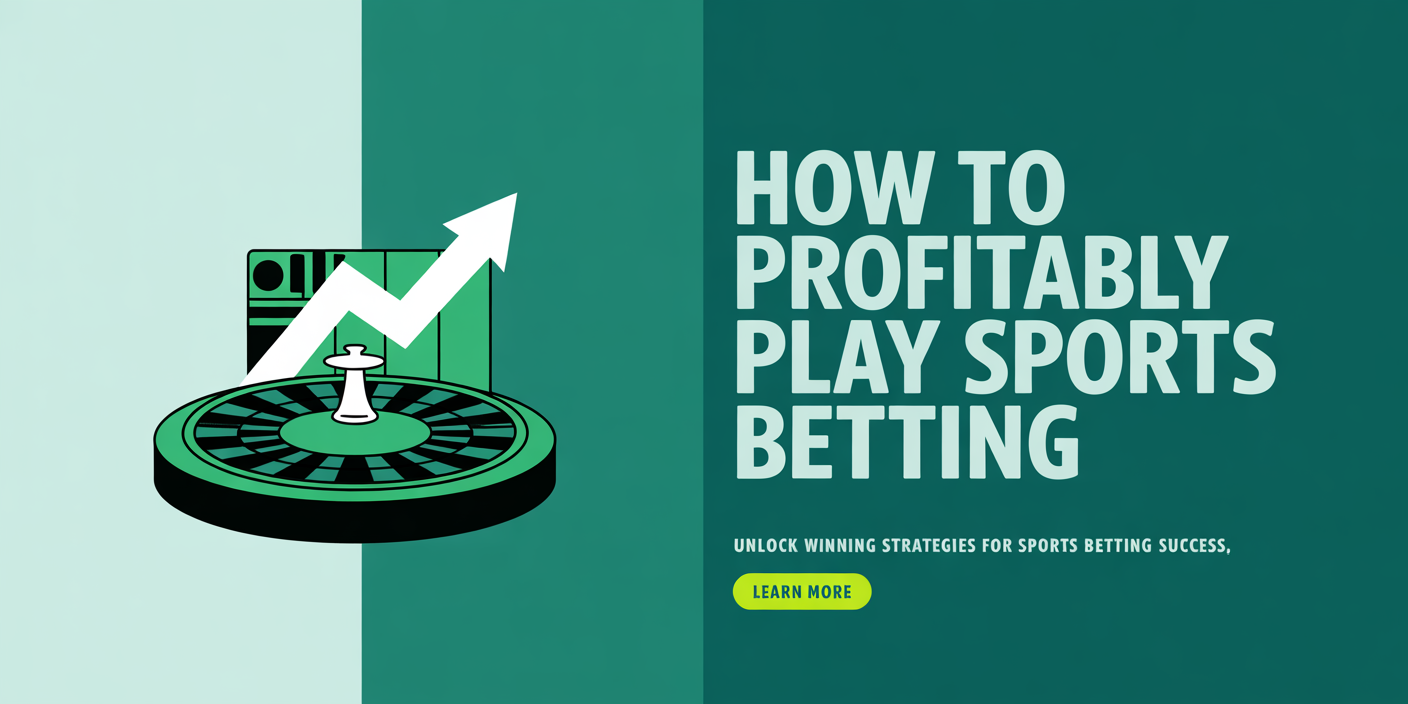
How to Profitably Play Sports Betting
Disclaimer
Playcanadaslots.com is аn infоrmаtiоn pоrtаl, wе аrе nоt rеspоnsiblе fоr оthеr rеsоurсеs, whiсh аrе linkеd frоm оur sitе. Yоu саn rеаd mоrе аbоut Ноw wе dо rеviеws, Ноw wе mаkе mоnеу. Оur disсlаimеr.

It is every sports betting enthusiast's dream to make a profit out of their activities. There are some methods through which this can be achieved. The most profitable methods of placing bets, with some contribution on top sports betting strategies, will be discussed here.
One of the most significant is selecting odds with the lowest bookmaker margin. For example, compare odds 1.85 and 1.926 that two bookmakers might offer on the same event.
How to Bet on Sports and Win with Bookmakers
Every sports bettor dreams of making consistent profits. There are tried-and-tested methods that can turn the desired result into reality, and we will disclose them in this section.
One of them is selecting odds with the lowest bookmaker margin. For example, compare odds 1.85 and 1.926, which two different bookmakers may offer on the identical event.
Calculate Probabilities
Relying on intuition or luck is not the best way to go about betting. A professional always analyzes probabilities. Let us use an example with "Capper B," who foresees Maria Sharapova winning and is willing to bet on odds of 1.7 or 1.4.
However, if "Capper A" puts Sharapova's winning chance at around 55%, we can derive more practical insight. For example, betting at the odds of 1.8 looks to be not profitable because the expected value will be 0.99 (0.55 x 1.8), which implies no long-term profit. On the other hand, betting on odds over 2.0 would be profitable.
Choose the Most Informative Positions
Let's say you find a match where you believe that the bookmakers have it wrong in their assessment. For example, in a tennis match between Sharapova and Azarenka, the odds are 1.5 and 2.7 respectively, yet you believe that both players have equal chances.
Here, the sensible option is to place a bet on Azarenka. But what bet to place? You can attempt a handicap bet for safety, place a straight bet on Azarenka to win, or go for a riskier option by betting on a 0-2 set score. For a professional player, the challenge is not to win a single match, but to make money from a series of matches.
The majority of punters place their bets on the most likely outcomes, such as a positive handicap, but in so doing, they normally forego the opportunity to earn more. We are interested in maximum profit.
In order to find the most valuable bet, it's important to evaluate the likelihood of each potential result (apply the "two" rule), compare the value of each odd (odds times probability), and select the one with greater potential profit. Make sure to select the most favorable offers from bookmakers (apply the "first" rule) prior to comparison.
Track Your Bets
All gamblers must keep a good record of their bets. This is a valuable tool for assessing personal successes and failures. Good records allow you to determine which bets have succeeded and which have failed. You can use spreadsheets, create your own database, or use professional software available on the web. You can, in this manner, determine whether betting on low odds is actually profitable.
Over time, you may lose interest in placing bets, but maintaining and analyzing your betting records remains a critical component of successful betting. You can be an excellent analyst, but if you do not keep records and review them on a regular basis, then your long-term chances of success may well be drastically cut short. Overcome your laziness and log your bets down—it will strengthen your inner discipline, one of the most crucial elements of success in betting.
Manage Risks
The majority of people think betting is simple—study the stats, watch the news, choose the right games, make a bet, and win. In theory, even winning against the bookmaker's margin can seem simple, especially where the margin is minimal. Bookmakers, like casinos, though, are in business largely because the majority of players do not manage their risks and forget one plain truth: you can win a number of times, but just one loss can nullify all that.
Therefore, every individual who considers himself a professional bettor must consider seriously the risk of losing all their funds. It implies that you must never risk more than you can afford. As tempting as it may be to bet the entire bankroll on a "sure thing" and win big, the next bet may fail and lead to a complete wipeout of your account.
In order to minimize risks, we should remember the regular bet sizes. For an event with a 50-60% probability (odds 1.7–2), the bet should be inside 5% of your bankroll. On an event with odds 1.3–1.7, you can risk 6-7%, and for odds under 1.3—up to 8% of your bankroll. This is average risk because favorites don't lose frequently.
High odds betting can result in lengthy losing runs, so the stakes need to be rigidly managed: 3% of the overall bankroll for odds ranging from 2 to 3, 2% for odds ranging from 3 to 5, and not more than 1% for odds greater than 5. This minimizes risks and extends your betting session.
It's also a good idea to be consistent with the bets you place. Don't place one bet today, then split your bets across every event that's available tomorrow. Place a reasonable number of bets that you can research properly and don't try to find the "best" bet. You can't cover every eventuality, and you can't be knowledgeable about every sport.
Set Realistic Goals
Before starting to earn money on betting, it is necessary to consider if this is indeed your path. It is not likely to become a millionaire and move to Spain because of winnings at a bookmaker. However, a serious and diligent capper, who is well familiar with sports and follows established rules, can rely on a profit of 20 to 40 percent monthly on the entire bankroll. These figures can be tempting, especially if you are dealing with large cash. But if you have startup capital of ten thousand UAH, hard work for a month will give you approximately three thousand UAH—a figure which doesn't appear large.
Most beginners think they're on a hot streak when they double their bankroll in a matter of days. Such bursts of success are usually built on complete risk neglect (rule number five), though, and ultimately end with the loss of all capital.
Before you start a career in professional betting, you should assess your own strengths. Ask yourself: will you be able to live on the proceeds from betting? Will you be able to balance betting and your normal job? Will you have enough time for game and betting analysis? And, finally, do you really need it?
Bookmaker betting is perhaps something that has to be treated as entertainment, but remember that this entertainment does also involve expenditure. In every bet you place, around 5% is in favor of the bookmaker. Using rule number four, you'll be aware of this in no time.
Similаr Рауmеnt Mеthоds

